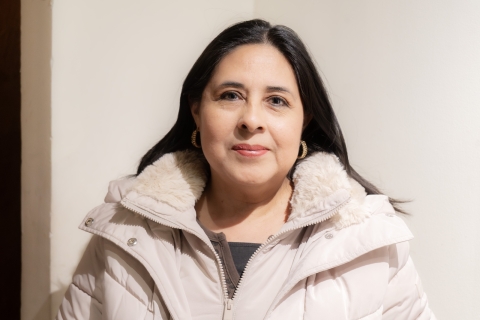
After investigative journalist Isabel Mercado revealed troubling kinks in the supply chain for cancer drugs along the U.S.-Mexico border, the Mexican state of Baja California pressed charges against the former officials involved, who now face up to 17 years in prison.
A participant in ICFJ’s Mexico Border Investigative Reporting Hub (Border Hub) program, Mercado reported that medications for cancer, HIV/AIDS and other ailments had been allowed to expire in warehouses, preventing patients from receiving desperately needed treatments. After her story was published, the state filed eight criminal complaints alleging mismanagement and corruption against the former governor’s administration.The state also promised to improve its tracking of the distribution of medicines.
Mercado received training, mentorship and story grants from the Border Hub to support her investigation. Since 2018, the Border Hub has trained more than 1,300 journalists along the U.S.-Mexico border to conduct data-driven investigations that expose corruption and wrongdoing at the local, state and federal levels. It has also helped participating journalists learn to stay safe while reporting.
In addition to training, more than 100 journalists also received mentorship tailored to the needs of their investigative projects, along with story grants.
“The Border Hub’s powerful combination of one-on-one mentorship plus story grants allows our outstanding participants to focus on often time-consuming investigative reports,” said Aliza Appelbaum, ICFJ vice president, programs. “It made possible important investigations that have uncovered corruption and improved lives in the reporters’ communities.”
Since the program was launched in 2018, Border Hub journalists have reported more than 215 stories that have informed the public and promoted positive change. Since last year, as a result of investigations by Border Hub participants, public officials have vowed to:
- Address air pollution: Proceso reporter Teresa González revealed last year how environmental laws are ignored in the Bay of Yavaros, Sonora, leading to high contamination levels. After the story was published, the governor pledged to address the problem of pollution in the bay; announced a visit to the site; and called for a government report on the issue.
- Reform health policies: After the publication of the 2023 Border Hub story about the 405% rise in opioid overdose deaths in Baja California, the state government announced that it would purchase reactive strips to detect if a person consumed fentanyl. The Secretary of Health also admitted that the government needs to reform health policies to improve the data tracking the types of opioids causing overdoses.
- Improve the treatment of sewage: In response to Francisco Rodríguez’s report on the failure and incomplete construction of several water treatment facilities in the state of Coahuila, officials met with water scientists and promised to create a comprehensive plan to address the crisis.
- Prosecute corruption: After Jorge Enrique Espejel Lomas and Gerardo Pineda Arciniega revealed that the state and local governments of Torreon, Coahuila may have been giving unfair tax breaks to soccer team owners in exchange for free tickets and other kickbacks, Mexico’s attorney general launched an investigation for alleged tax fraud.
Read more about the impact of Border Hub journalists’ work: How a Reporting Network at the U.S.-Mexico Border is Helping Reduce Corruption.
The Border Hub is a project of the International Center for Journalists in alliance with the Border Center for Journalists and Bloggers and with the support of the United States Agency for International Development.